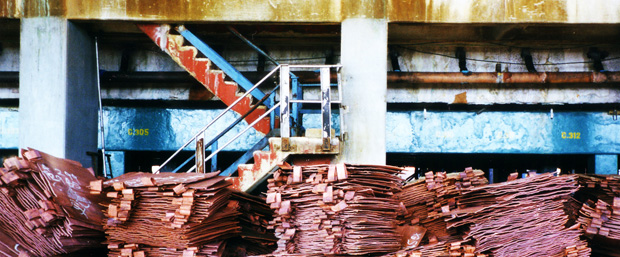We entrust governments – with our votes and money – to act transparently in our interest. This includes for the public contracts that they bid out to deliver: everything from schoolbooks to sanitation systems. Globally, these costs are estimated to top nearly US$ 9.5 trillion each year.
Yet many of these contracts are done behind closed doors. Without the public in the know, people are without the basic facts – for how much and to whom – to make sure that corruption and abuses don’t happen.
Take the example of my country, Zambia. In Zambia the government and local councils are the biggest spenders of public money. Unsurprisingly, government procurement is one of the areas where corruption is most pervasive.
One stand-out case of abuse and secrecy was the privatisation of the country’s lucrative copper industry between 1997 and 2000. Zambia is Africa’s largest copper producer and exports nearly US$7 billion of the metal annually. Parts of the privatisation deals, called “Development Agreements”, were sealed off from the public.
The agreements “sweetened” the terms of the privatisation deals and covered issues such as the liabilities of the old state companies (including pensions that were owed), tax payments, and application of national laws (such as for levels of environmental pollution).
And while the agreements had impacts on the local communities and all of Zambian society, the agreements were kept secret. Although a change in laws in 2008 was to have rescinded all these agreements, many mining contracts continue to be secret.
This has meant that local governments, copper trade unions, members of parliament and even the bodies tasked to directly regulate the companies do not know what is in them. Recently, the government has begun a process of renegotiating agreements to ensure participation of Zambians in the ownership of mines.
The agreements continue to stir so much controversy since the money the mines is producing is largely not being returned to Zambia. While copper accounts for 70 per cent of the country’s export earnings, revenue from the mining industry accounts for under five per cent of the national budget. Estimates are that roughly US$2 billion annually is lost to tax avoidance schemes by companies.
Sadly, secret contracts have been a constant problem in Zambia, bringing with them many tales of corruption.
As recently as last year, a US$210 million procurement contract for government closed circuit television cameras was directly awarded by senior Zambian government officials to a Chinese company without any open tender or the terms of the contract being made public. By the end of 2013, the contract was voided after numerous allegations of corruption were made.
A new global campaign and petition to stop secret contracts, supported by Transparency International and others, aims to make sure that all public contracts are made publicly available to stop funny business before it starts. You can follow this campaign on Twitter here: #SecretContracts
Let’s hope the petition serves to remind governments where the money is coming from in their coffers: us.
Carousel image: Creative commons, Flickr/ mm-j
















 Connect with us on Facebook
Connect with us on Facebook Follow us on Twitter
Follow us on Twitter